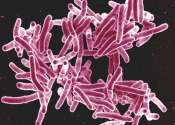Allies or enemies of cancer: The dual fate of neutrophils
Why do cancer immunotherapies work so extraordinarily well in a minority of patients, but fail in so many others? By analyzing the role of neutrophils, immune cells whose presence usually signals treatment failure, scientists ...
Mar 30, 2023
0
39





